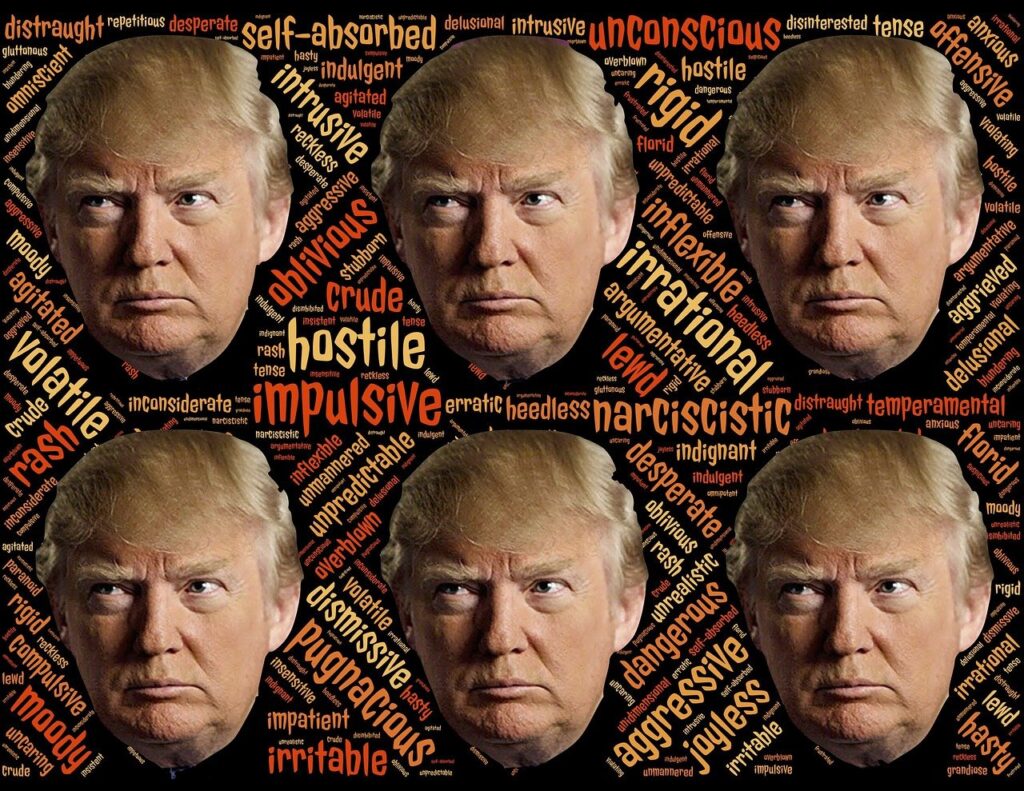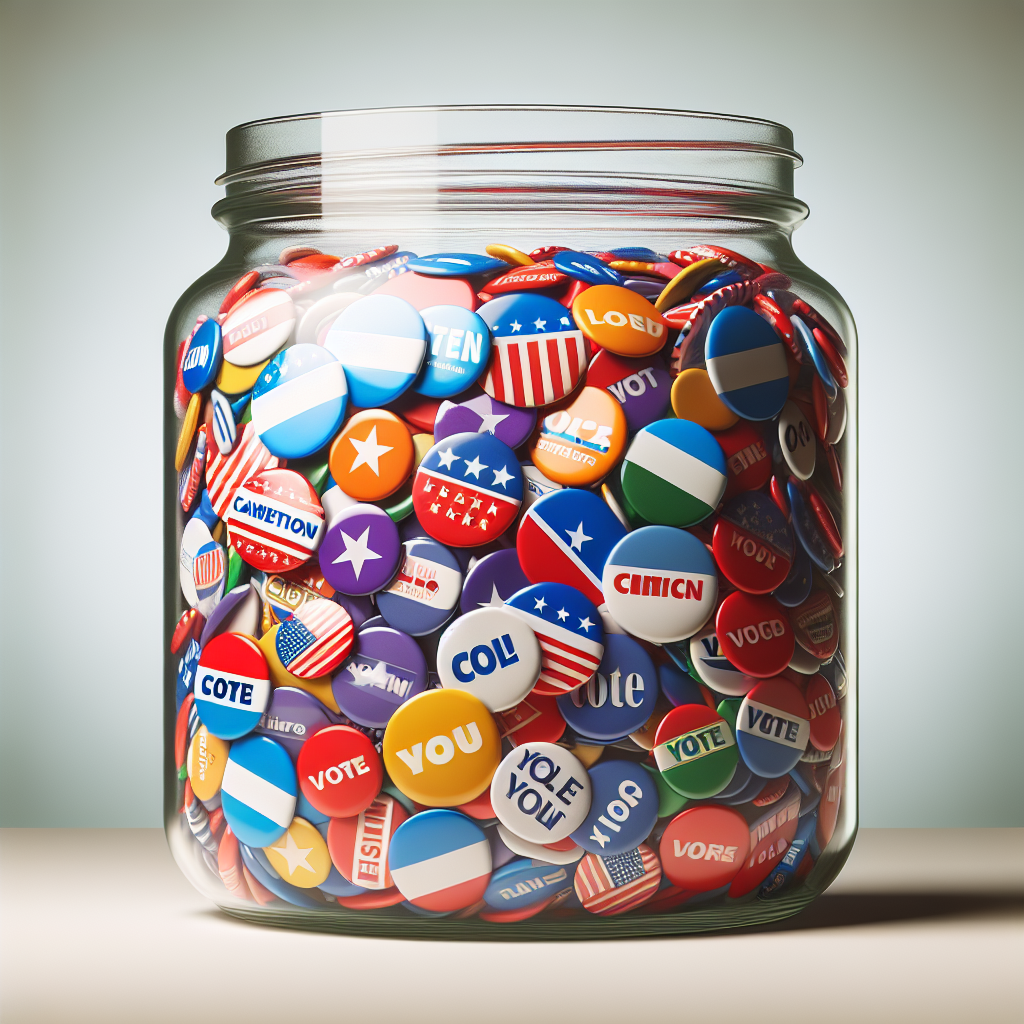In the world of politics, one of the fundamental aspects that plays a crucial role in any electoral campaign is the ability to raise campaign funds. Whether it’s a presidential race or a local election, candidates must navigate through a myriad of strategies and approaches to ensure they have the financial support needed to run a successful campaign. From organizing fundraising events to reaching out to potential donors, this article explores the various methods employed by candidates to secure the necessary funds to fuel their campaigns. So, let’s uncover the secrets behind the art of raising campaign funds!

Donations from Individuals
Individual Contributions
Individual contributions play a crucial role in funding political campaigns. These contributions come from everyday citizens who want to support a particular candidate or party. Donating to a campaign allows individuals to actively participate in the political process and help shape the outcome of elections. The funds donated by individuals can be used for various campaign purposes, such as advertising, organizing events, and financing campaign staff.
Political candidates often rely heavily on individual contributions, as they can quickly add up and provide a significant financial boost to their campaigns. Whether it’s a small donation from a grassroots supporter or a large contribution from a wealthy individual, every dollar counts towards achieving campaign goals. Fundraising efforts are often targeted towards building a broad base of individual donors, as it helps candidates to demonstrate their support from the community and gain momentum.
Small-Dollar Donations
Small-dollar donations are the lifeblood of many political campaigns. These donations, typically ranging from $1 to $200, are given by individual contributors who may not have the means to make large contributions. However, the collective impact of these small-dollar donations can be substantial, especially when a candidate can attract a large number of supporters.
Candidates often emphasize the importance of small-dollar donations because they represent a broader base of support and help to foster a sense of grassroots engagement. By reaching out to a wide range of individuals and encouraging them to contribute even small amounts, campaigns can tap into a diverse donor pool and show that they have widespread support from everyday citizens.
Political Action Committees (PACs)
Types of PACs
Political Action Committees (PACs) are organizations established to raise and spend money to support or oppose political candidates or issues. There are several types of PACs, each with its own guidelines and restrictions.
-
Connected PACs: Connected PACs are formed by corporations, labor unions, trade associations, or other organizations. They are affiliated with a particular interest group or industry and aim to support candidates who align with their policy positions.
-
Non-Connected PACs: Non-Connected PACs are not affiliated with any specific organization or industry. They can be created by individuals or groups of individuals who want to pool their resources to support candidates.
-
Leadership PACs: Leadership PACs are established by elected officials or candidates to support their personal political goals. These PACs allow politicians to build relationships, fundraise for other candidates, and gain influence within their party.
Donations from PACs
PACs play a significant role in campaign financing, as they can contribute directly to political candidates’ campaigns. PACs can make donations based on the Federal Election Commission’s guidelines and contribution limits.
Donations from PACs can provide campaigns with substantial financial support, especially when they come from influential or high-profile PACs. Candidates often seek out PAC donations that align with their political beliefs or interests, as these contributions can signal support from key interest groups or industries. However, it is important to note that PAC donations are also subject to scrutiny, as critics argue that they may lead to potential conflicts of interest or undue influence on elected officials.
Party Committees
National Party Committees
National Party Committees, such as the Democratic National Committee (DNC) and the Republican National Committee (RNC), play a significant role in supporting political candidates. These committees raise funds at the national level and provide resources to candidates running for federal office. The funds raised by these committees are used to finance party activities, organize campaigns, and support candidates.
Candidates often rely on support from their respective national party committees, as these organizations have established infrastructure, networks, and fundraising capabilities. National party committees can provide candidates with financial resources, strategic guidance, and access to influential party members. Through their support, party committees help candidates to amplify their message, engage with voters, and enhance their chances of winning elections.
State and Local Party Committees
In addition to the national party committees, state and local party committees also play a crucial role in campaign funding. These committees operate at the state and local levels, supporting candidates running for state legislatures, governorships, mayoral positions, and other local elected offices.
State and local party committees raise funds through various means, such as hosting fundraising events, soliciting individual donations, and seeking contributions from business or labor groups. The funds collected by these committees are used to provide financial and logistical support to candidates at the state and local levels. This support can include campaign staff, voter outreach programs, and advertising resources. The backing of state and local party committees can significantly enhance a candidate’s visibility and chances of success in their respective elections.
Super PACs
Definition and Role
Super PACs, or “Political Action Committees,” are independent expenditure committees that can raise and spend unlimited funds to support or oppose political candidates. Unlike traditional PACs, super PACs cannot contribute funds directly to candidates or coordinate their activities with them. Instead, they focus primarily on independent expenditures, such as advertising, voter mobilization efforts, and issue advocacy.
The role of super PACs in campaign financing has increased significantly since their establishment in 2010. These committees can accept unlimited contributions from individuals, corporations, labor unions, and other organizations. Super PACs’ ability to raise and spend vast amounts of money has made them potent players in elections, often enabling them to fund extensive media campaigns and influence the political landscape.
Donations from Super PACs
Super PACs can make significant contributions to political campaigns by running independent expenditure campaigns in support of or against specific candidates. They can spend large sums of money on advertising, issue advocacy, and voter mobilization efforts independently of a candidate’s campaign. As a result, candidates often seek support from super PACs that align with their policy positions or have significant financial resources.
Donations from super PACs can provide a substantial financial boost to campaigns, allowing candidates to compete in highly contested races or counter the influence of opposing political groups. However, the influence of super PACs in politics has also raised concerns regarding transparency, as they are not subject to the same contribution limits and disclosure requirements as traditional PACs.

Political Parties
Party Contributions
Political parties themselves also contribute to the campaigns of their candidates. These contributions can take various forms, including financial assistance and in-kind support.
Financial assistance from political parties can prove crucial for candidates, particularly those running for higher office or in competitive races. Parties may allocate funds to support candidates they believe have a strong chance of winning or whose success aligns with the party’s goals and strategies. These contributions can be used for a wide range of campaign activities, such as advertising, polling, and voter outreach programs.
Party contributions can also extend beyond monetary support. Parties often provide candidates with in-kind support, such as campaign materials, strategists, and volunteers. These resources help to bolster a candidate’s campaign infrastructure and increase their chances of success. The support provided by political parties represents their commitment to promoting their party’s values, vision, and policy agenda through their endorsed candidates.
Coordinated Party Expenditures
In addition to direct contributions, political parties can also make coordinated expenditures on behalf of their candidates. Coordinated party expenditures involve using party funds to pay for campaign activities that are conducted in cooperation with the candidate’s campaign team. These activities can include advertising campaigns, voter mobilization efforts, and advocacy initiatives.
Coordinated party expenditures can provide a significant advantage to candidates, as they allow for the pooling of resources and the coordination of strategic campaign efforts. By working together with the party, candidates can benefit from shared expertise, access to voter data, and the ability to reach a broader audience with their message. These coordinated efforts aim to maximize a candidate’s chances of winning by combining the resources and strengths of both the candidate and the party.
Public Funding
Presidential Primary Matching Payment Account
The Presidential Primary Matching Payment Account is a public funding program available to qualifying presidential candidates during the primary election period. Candidates who participate in this program agree to limit their overall campaign spending and rely on public funds to finance their campaigns.
The program matches eligible contributions from individuals on a dollar-for-dollar basis, up to a specific limit. In return for accepting public funds, candidates must adhere to spending limits set forth by the Federal Election Commission. The matching funds received through this program can help candidates level the playing field, particularly those who may not have access to significant personal wealth or widespread donor networks.
Presidential Election Campaign Fund
The Presidential Election Campaign Fund is another public funding program available to qualifying presidential candidates during the general election. Candidates participating in this program receive a grant from the Fund to help finance their campaigns. In return, they agree to a spending limit and accept restrictions on the use of non-public funds.
The Presidential Election Campaign Fund aims to reduce the influence of private money in presidential elections and promote fairness and equal opportunities for all candidates. However, in recent years, the participation in this program has declined, as many candidates have chosen to forgo public funding in favor of raising private funds that are not subject to spending limits.

Fundraising Events
Gala Dinners
Gala dinners are fundraising events that allow candidates to connect with supporters and potential donors in an elegant and festive atmosphere. These events typically feature a dinner or banquet, entertainment, and speeches by the candidate or prominent supporters.
Gala dinners serve multiple purposes within a campaign. They provide an opportunity for donors to engage with the candidate personally, ask questions, and gain a deeper understanding of the candidate’s platform. Additionally, these events can generate significant financial support for the campaign through ticket sales, auctions, and individual donations made during the event.
Benefit Concerts
Benefit concerts are popular fundraising events that bring together music, entertainment, and political activism. These events feature performances by renowned musicians and artists who support the candidate’s campaign or share similar political views.
Benefit concerts serve as a platform for candidates to rally their supporters, raise funds, and enhance their public image. These events attract music enthusiasts, activists, and supporters who are passionate about both the candidate’s campaign and the power of music to inspire and effect change. Benefit concerts can generate substantial revenue through ticket sales, merchandise, and donations, while also creating a sense of community and shared values among attendees.
Meet-and-Greet Events
Meet-and-greet events provide candidates with a more intimate and personal setting to connect with voters and potential donors. These events can range from small gatherings held at private residences to larger community gatherings at public venues.
Meet-and-greet events offer candidates the opportunity to engage in one-on-one conversations, listen to constituents’ concerns, and share their vision and policy proposals. These events often appeal to individuals who want to get to know the candidate on a more personal level and make a direct impact on their campaign. They can also serve as fundraising opportunities, as attendees may be inspired to contribute financially after meeting the candidate face-to-face.
Online Fundraising
Website Donations
Online fundraising has become increasingly popular as a means for candidates to reach a broader audience and collect donations. Candidates often create comprehensive websites that showcase their platform, inform voters about their campaign, and provide opportunities for online donations.
Website donations allow individuals from across the country or even the world to contribute financially to a candidate’s campaign with just a few clicks. These donations can be made securely through various online payment platforms and can vary in size, from small-dollar contributions to substantial amounts. Candidates often promote their websites through social media, emails, and other online channels to engage a wider network of supporters and maximize their fundraising potential.
Crowdfunding Platforms
Crowdfunding platforms, such as Kickstarter or GoFundMe, have also become popular tools for political fundraising. These platforms allow candidates to create fundraising campaigns specifically designed to attract online donors.
Candidates can set fundraising goals, create compelling campaign narratives, and offer incentives for different levels of donations. Crowdfunding platforms provide candidates with an opportunity to tap into a large pool of online donors who may not have been reached through traditional fundraising methods. The viral nature of these platforms also allows campaigns to gain wider visibility and attract support from well beyond their immediate network.

Self-Funding
Personal Wealth
Some candidates choose to self-fund their campaigns, using their personal wealth to finance their political aspirations. Candidates who have significant personal assets or access to substantial resources may opt to rely on their own funds rather than seeking external donations.
Self-funding allows candidates to have greater control over their campaign finances and messaging. It bypasses the need to rely on donations from individuals or organizations, and it can provide candidates with more financial flexibility. However, self-funding does come with limitations, as it may not be sustainable for all candidates, especially those without significant personal wealth.
Loans
In addition to self-funding, candidates may also choose to take out personal loans to finance their campaigns. These loans are typically obtained from financial institutions or private lenders and can be used to cover campaign expenses, such as advertising, staff salaries, and operational costs.
Loans can be an effective way for candidates to access the necessary funds upfront, even if their personal wealth is not substantial. Candidates may seek loans with the expectation that their campaign will generate enough donations to repay the borrowed amount. However, loans come with the added responsibility of repayment, which can impact a candidate’s financial future, particularly if the campaign is not successful.
Fundraising Consultants
Fundraising Campaign Strategy
Fundraising campaign strategies are essential for candidates looking to efficiently raise campaign funds. Fundraising consultants specialize in developing and implementing effective strategies to maximize a candidate’s financial resources.
Fundraising consultants work closely with candidates to identify target donor pools, create compelling messaging, and develop fundraising events and initiatives. They help candidates optimize their fundraising efforts by leveraging various strategies, such as direct mail campaigns, phone banking, online contributions, and networking events. Fundraising consultants also assist in donor cultivation, ensuring that candidates make personalized connections with potential contributors and build long-lasting relationships.
Engaging Fundraising Professionals
Engaging fundraising professionals, such as campaign finance directors or development officers, can be instrumental in managing and expanding a candidate’s donor network. These professionals have expertise in donor outreach, relationship-building, and financial management.
Fundraising professionals work closely with candidates to develop fundraising plans, set financial goals, and identify potential sources of funding. They are responsible for coordinating fundraising events, managing donor databases, and monitoring campaign finances. By collaborating with fundraising professionals, candidates can ensure that their fundraising efforts are streamlined, transparent, and in compliance with campaign finance regulations.
In conclusion, candidates employ a variety of strategies to raise campaign funds, tapping into individual contributions, PAC donations, party support, public funding, and various fundraising events. The combination of these fundraising sources allows candidates to build strong financial foundations, connect with supporters, and actively engage in the democratic process. With the support of donors, candidates can amplify their messages, reach a wider audience, and ultimately compete in competitive elections to effect positive change in their communities and beyond.


Comments are closed